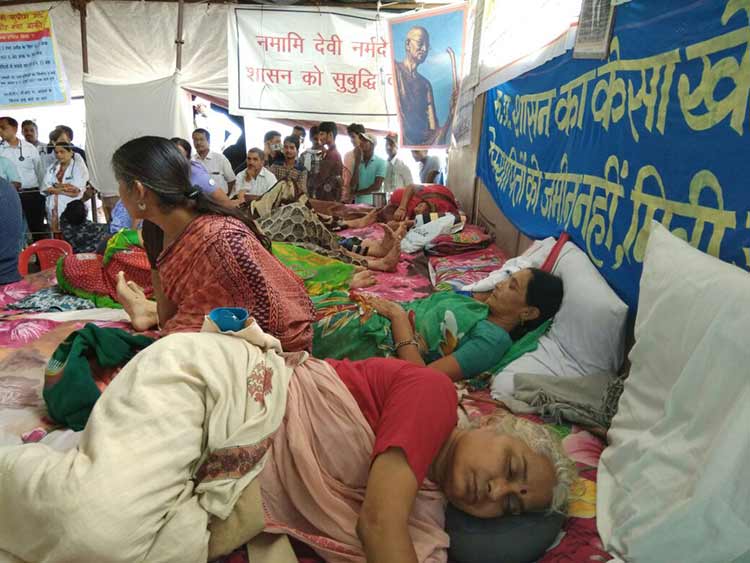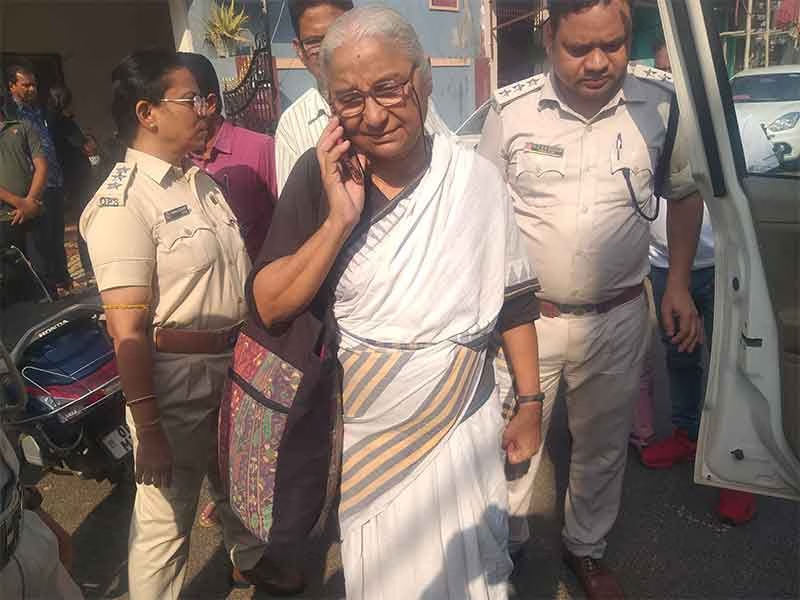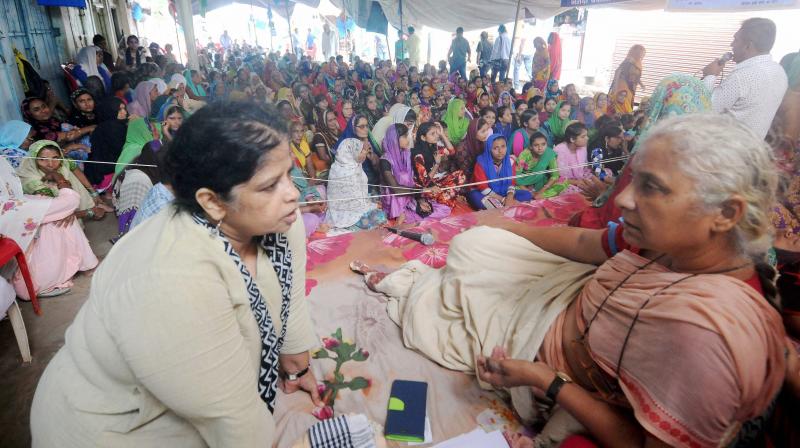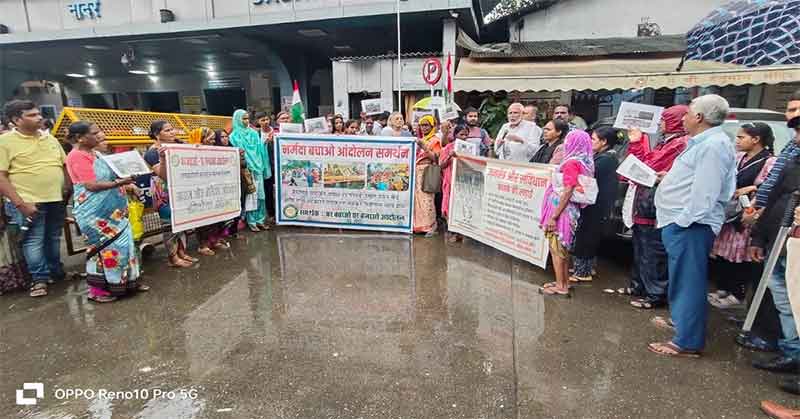
Fasting, according to Mahatma Gandhi, is a tactic that should be used only when other avenues of redress have been explored and failed. In a struggle that has spanned over 30 years, Medha Patkar and her Save the Narmada movement (Narmada Bachao Andolan, NBA) certainly cannot be accused of not using every possible avenue to secure justice for some 60 000 odd persons who have lost livelihoods and homes to the Sardar Sarovar Dam. They have advocated to politicians of every political party, stood for election to parliament and filed petitions in the courts to stop the dam, and subsequently limit its adverse impact to people and the environment. In 1991, Patkar received the Right Livelihood Award, also known as the “Alternative Nobel Prize” for her “inspired opposition to the disastrous Narmada Valley dams project and their promotion of alternatives designed to benefit the poor and the environment.” Yet, as the Indian political scientist Shiv Vishwanathan puts it so eloquently, today’s‘new India’ confronts Patkar and NBA with “indifference, silence and erasure.” It is to defy this indifference and break this silence that Patkar and eleven NBA colleagues chose to begin an indefinite fast on July 27 to protest against the Madhya Pradesh government’s inadequate rehabilitation policies for the 40 000 people who will be affected following a recent decision to raise the height of the dam.
For days, the Madhya Pradesh government and a large section of the Indian media ignored the small group of protesters fasting in Madhya Pradesh’s Dhar district.Then, instead of engaging in a dialogue with NBA, the authorities on August 9 forcibly removed Patkar and several others from the site of their protest. The police masked their violent tactics by insinuating that their action was motivated by concern for the deteriorating and fragile health of the protesters, but this pretext to disrupt the protest fooled no one. Patkar was held for two days in a private hospital against her wishes, while her colleagues were confined to a government hospital. It was clear that the Madhya Pradesh government did not want the possible martyrdom of activists to interfere with its plans to raise the height of the dam at any cost.
Unfortunately, the government’s attempt to quickly bury the issues by disrupting the protest inadvertently gave it the publicity it previously lacked, and the news that police used force against fasting protesters was covered by most of India’s major newspapers. The government, however, was in no mood to relent, and attempted to weaken the NBA movement by formally arresting Medha Patkar soon after her release from hospital on August 9, even as she attempted to resume her fast. She was charged of breaching the peace, engaging in assault or criminal force to deter a public servant from discharge of duty, and most bizarrely, of kidnapping a government official. Subsequently, she was granted bail on all but the kidnapping charge. Anyone who has ever met Patkar – who is uncompromising in her belief in non violence – will find these charges to be beyond belief. The fact that the Madhya Pradesh High Court postponed her bail hearing scheduled for August 21 because the police did not produce the case diary reveals the extent to which the entire state apparatus of the Madhya Pradesh government is working overtime to keep Patkar in prison – solely for peacefully protesting and questioning government policy.
In undertaking her peaceful protest, Medha Patkar was merely exercising her right to assemble peacefully and without arms, guaranteed by Article 19(b) of the Indian Constitution. Further, India is obliged as a State Party to the International Covenant on Civil and Political Rights to recognise the right of peaceful assembly. However, as CIVICUS, an influential international alliance of civil society organisations observes, “although India’s many civil society organisations have until recently enjoyed an enabling operating environment, civic space is being increasingly constrained because of government interference with the freedoms of association, expression, and peaceful assembly.”
During a month where countless articles have been printed celebrating and commemorating India’s 70th Independence Day, India’s government and policymakers would do well to reflect on the case of Medha Patkar. Patkar, a peaceful protester who has spent a lifetime engaging in Gandhian opposition tactics, spent Independence Day as a political prisoner in a cell in Dhar district jail. Fighting for the rights and livelihoods of those affected by the Sardar Sarovar Dam – some of India’s most marginalised citizens – led Patkar to suffer the same fate as many of India’s freedom fighters jailed by the British colonial regime. Can a people be truly independent if a government that claims to represent them cracks down ruthlessly on dissent and throws human rights defenders in jail on trumped up charges? Does the State apparatus in India not know how to respond to anyone who mounts an effective challenge to its approach to ‘development’ in any way other than repression and imprisonment? How the world’s democracies and international organisations respond to this choking of India’s democracy and civil society personified by Patkar’s continued imprisonment will reveal how serious their commitment to halting the shrinking space for civil society truly is.
Sharan Srinivas is the Director of Research and Advocacy at the Right Livelihood Award Foundation.
















































